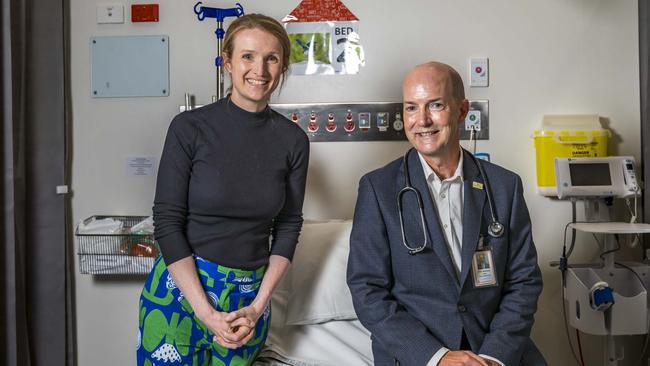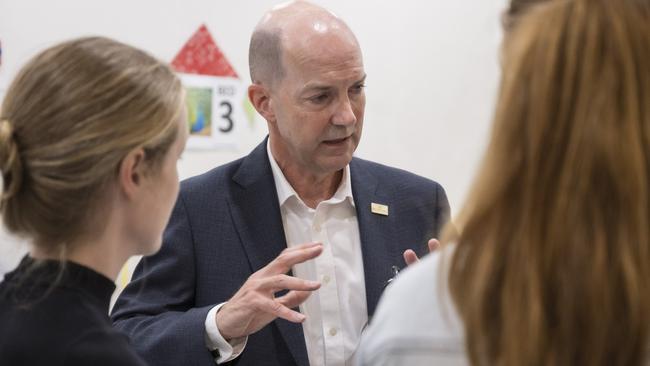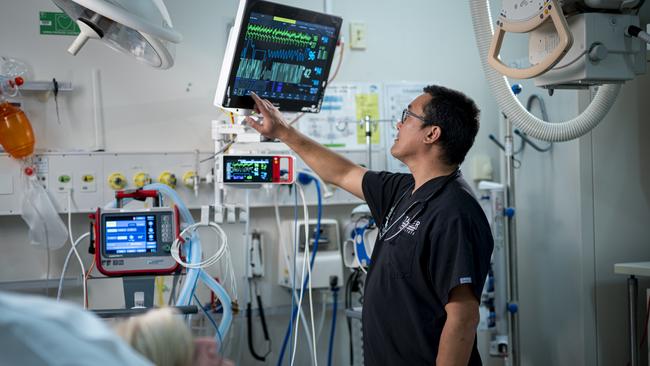Kidney Research Gives Hope to Tasmanian Women Dreaming of Motherhood
Two million in funding for research medical projects with a Tasmanian focus could one day bring relief to thousands of people living with chronic kidney disease, dementia – and even sore feet.

Tasmania
Don't miss out on the headlines from Tasmania. Followed categories will be added to My News.
Making patients cry has never been a goal for Professor Matthew Jose, a distinguished kidney expert. But that changed when he told a female patient with chronic kidney disease that she could finally have a child — and she burst into tears of joy.
“Up until very recently, women of child-bearing age with chronic kidney disease were told not to have children,” Prof Jose said, adding that historically, most kidney researchers were men.
“For us, it’s about empowering young women who’ve often been told, ‘Don’t have children because your kidneys are too weak.’ Well, our research is showing it’s not all bad news. You can have children. You can have a good outcome.”
Prof Jose’s research is one of 38 Tasmanian-led medical research projects receiving funding through a $2 million grant from the Royal Hobart Hospital Research Foundation. The projects focus on critical health challenges prevalent in Tasmania, including pancreatitis, dementia, Parkinson’s disease, and prostate cancer. 90 per cent of the grant funding came from donations, mainly from Tasmanians.

The foundation’s CEO, Stephanie Furler, emphasised the importance of investing in local research, given Tasmania’s high burden of chronic disease.
“There are a lot of health problems that are more prevalent here than on the mainland,” Ms Furler said. “We’re focused on research that can help keep people out of hospital and improve their quality of life.”
“But at the heart of it, it’s about helping people in our community, and from there, seeing if it can have a broader global impact.”
The grants support research across a lifetime of health challenges, from end-stage dementia and cancers to chronic plantar fasciitis and other issues.
One project to receive funding aims to develop a mobile phone-based test to determine if someone is at risk of Alzheimer’s, while another seeks to increase exercise rates in patients who have had heart valve replacements.
With approximately 12.5 per cent of Tasmanians living with chronic kidney disease — the highest rate in Australia — the latest round of funding for Prof Jose’s work is expected to make a profound difference.

While dialysis rates have stabilised in Tasmania’s south, Prof Jose says there is growing demand in the state’s North-West, underscoring the need to identify “pockets” of high demand and target services accordingly.
Increasing understanding of the psychosocial determinants of the disease- such as depression, anxiety and social isolation – is also proving important. “There’s a big focus now on prevention, self-management and care for those affected by chronic kidney disease. It’s working towards more of a holistic approach to care,” he said.
And for women with chronic kidney disease who’ve been told motherhood is out of reach, Prof Jose has only good news to offer this Christmas.
“Our research is not yet published, but we now know it’s not a black-and-white case of yes or no,” he said.
“Especially after a kidney transplant, many women will be able to have children, if that’s what they want.”
To donate to the Royal Hobart Hospital Research Foundation Christmas Appeal please visit https://christmas.rhhresearchfoundation.org/


